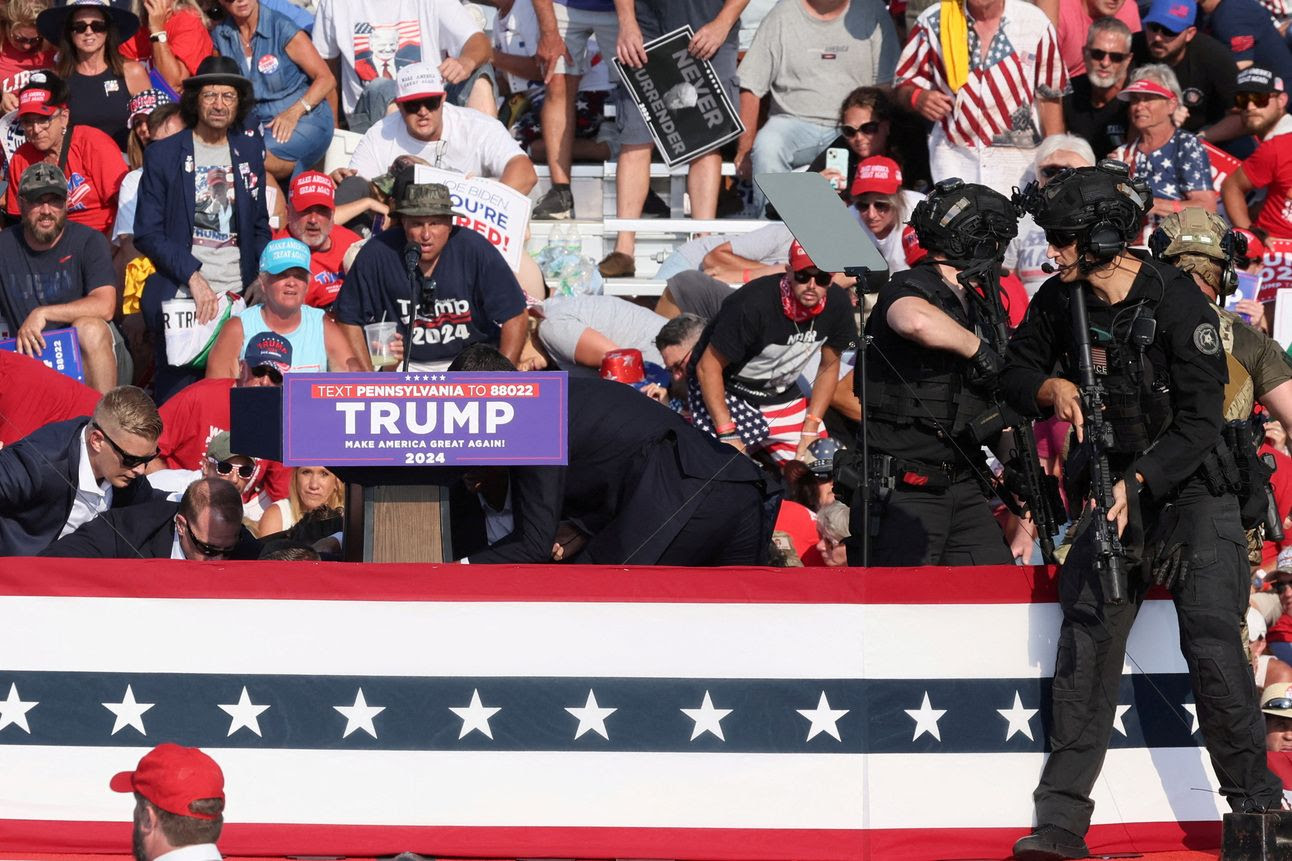As the facts emerge from Saturday’s shooting at Donald Trump during his rally in Pennsylvania, it’s worth taking a look at how world powers are now processing and using those events, both in public and behind the scenes.
First, behind the scenes: there are ~175 embassies in Washington DC (plus another ~40 consulates in Pennsylvania). Most will be writing cables (a fancy word for ‘reports’) back to HQ trying to help their governments make sense of what – if anything – this all means for the US and its place in the world.
And you don’t need military grade encryption-busting tools to know what they’re probably saying.
Stay on top of your world from inside your inbox.
Subscribe for free today and receive way much more insights.
Trusted by 114,000+ subscribers
No spam. No noise. Unsubscribe any time.
Embassies representing US rivals – or governments more sceptical and resistant to US power – will be more likely to see these events as evidence of:
- Worsening polarisation within US society
- The US becoming more inwardly focused, and
- The US democratic model becoming less appealing, its messaging less credible, and so its voice abroad less influential.
Meanwhile, the embassies of US friends and allies – or those more reliant on US power to (say) stabilise regions or patrol sea lanes – might also see:
- A mere extension (albeit now a live-tweeted one) of the long US history of political violence
- Another ‘stress test’ that can ultimately prove the resilience of US society, institutions, and power, and
- A warning that could now nudge the US to course-correct back to a less apocalyptic framing around this election and beyond.
As for out in public? The vast majority of world leaders have said the only thing you can say: condemn the violence; express sympathy for the harmed and killed bystanders; and wish Trump a speedy recovery (the shooting injured his ear).
But a few other capitals have gone further, often with transparent motives. For example, Russia has carpéd the diem by hinting at a conspiracy, linking this violence at home to America’s “use of force” abroad, and poking the US for backing Ukraine’s self-defence rather than (they claim) law and order back home.
The aim here is, of course, to fan any flames of US division, erode confidence in US authorities, and sap US support for Ukraine. Moscow will also have domestic aims, including highlighting US dysfunction in the hopes of preserving indifference or acquiescence to Putin’s rule back home.
Interestingly, Venezuela‘s autocrat, who avoided a drone assassination in 2018, has played it straight: “We have been adversaries, but I wish President Trump health and a long life, and I repudiate the attack“. Maduro is under pressure ahead of elections, and needs neither US scrutiny nor enmity right now.
Finally, US allies have also issued some interesting responses: Turkey‘s Erdoğan voiced confidence (with a dash of yearning) that this won’t overshadow “the US elections and global stability“; Italy‘s Meloni said the event was a “warning to everyone to restore dignity and honour to politics“; and Australia‘s Albanese said “we must lower the temperature of debate“.
For now, both Biden and Trump seem to have echoed that sentiment, apparently even managing a “good” if “short” phone call.
INTRIGUE’S TAKE
The 175 embassies in DC will each also have their own take on what (if anything) this weekend’s shooting means for the US election outcome. And for guidance, they’ll look to a few sources across history, geography, markets, and their local contacts. But the reality is, they’ll get mixed signals.
- Looking back, they’ll see Reagan’s post-shooting bump came two months into his first term, then faded in weeks. And two assassination attempts didn’t deliver much of a sympathy or solidarity spike for Ford, nor (say) for the Democrats after RFK’s assassination in 1968.
- Looking abroad, Slovakia’s Fico didn’t see much of a lift after his shooting in May, nor did Japan’s Kishida after last year’s incident with an explosive. Alternatively, you could look at (say) Brazil’s Bolsonaro, who won power after surviving a stabbing in 2018.
- As for the markets? They’ve mostly shrugged this off, though Bitcoin prices have spiked, likely reflecting beliefs among traders that US turmoil could drive more folks to go crypto.
- And as for local embassy contacts, they’ll be repeating the same lines you’ve heard elsewhere: this might fire up Trump’s base, fuel a ‘fighter‘ or ‘martyr‘ framing, distract from (or highlight) Biden’s age questions, or make it harder for Democrats to replace him. And so on.
But at the end of the day, Trump is still Trump, Biden is still Biden, and the US election date is still many months (and twists) away.
Also worth noting:
- The Republican Party’s convention kicks off in Milwaukee today (Monday). Trump is due to formally receive the party’s nomination on Thursday, and he’s said he’s now rewriting his speech to focus less on Biden, and more on bringing the country together.
- Following the weekend’s shooting, President Biden has cancelled today’s planned trip to Texas and has suspended all campaign communications (including ads).
- If you’re interested to dive a little deeper into how the world is shaping the US elections (and vice versa), subscribe for free to our very own Election Intrigue for our weekly, apolitical briefing.









